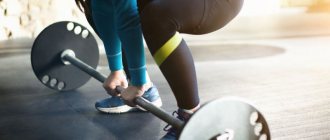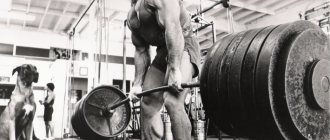For an athlete, his health and well-being are important—it affects the results of training and competitions. Abdominal cramps, nausea, heartburn and other unpleasant symptoms can occur at the most inopportune moment. What causes this and how to avoid it? Let's figure it out.
Specialists in the field of sports medicine indicate that almost half of athletes experience minor problems with the gastrointestinal tract during training. Common symptoms include:
- nausea
- heartburn
- indigestion
- intestinal disorder
- irritable bowel syndrome.
Digestive problems are specific to different sports. For example, fans of running training most often consult a doctor about disorders of the digestive system. The occurrence of unpleasant gastrointestinal symptoms while running usually does not indicate significant health risks, but such an unpleasant experience can reduce motivation to exercise.
The mechanism of development of the problem
Different types of training actively load certain muscle groups, for example, when running, the quadriceps are actively loaded. A kind of competition arises between muscles and internal organs for blood flow. Since the needs of muscles for oxygen and nutrients are higher than those of internal organs, during intense running up to 80% of the blood flow can be directed to the legs. As a result, the digestive system has fewer resources to digest and absorb food and water consumed before and during exercise. The stomach gives in, and the pizza that you ate half an hour before training may “ask to go out.”
The risk of unpleasant consequences increases if you eat food immediately before training. Everyone chooses the right time for themselves: some can comfortably exercise a quarter of an hour after eating, while others should eat at least 2 hours before training. The higher the intensity of the load, the more blood is redirected from the digestive system to the muscles, which also affects the occurrence of pain in the abdomen.
Does the above mean you need to give up intense training? Absolutely not, you just need to take into account a number of important recommendations to reduce the risks of problems with the digestive tract. In general, there is a lot of individuality in this issue; you need to learn to feel your body and monitor its reaction to different types of stress and food. Below are general guidelines for avoiding problems common to the most popular sports.
Preventive measures against nausea
To avoid nausea during and after training, you must follow these rules:
- Avoid overtraining, increase the load gradually so that the body has time to adapt to it. To monitor your progress, keep a training diary.
- Organize your diet so that the break between a heavy meal and training is at least 2 hours. And if after this you continue to feel sick during training, increase this period to 3-4 hours with a quick carbohydrate snack before classes, take digestive enzymes.
- Do not drink a lot of water before exercise; during training, drink little by little, in small sips.
- Do not use such dangerous, and also ineffective, weight loss methods as a salt-free diet, taking diuretics, or using thermal suits.
- Monitor how you feel after taking sports supplements. Often athletes feel sick during training from pre-workout complexes, fat burners and thermogenics.
- Learn to breathe correctly and evenly when doing exercises.
- Monitor your blood pressure and blood sugar levels.
- Use athletic belts with caution.
- Do not allow your body to overheat during training.
If you feel nauseous during a workout, stop immediately, sit down, or better yet, lie down, swallow a few glucose tablets, and drink salted water. If nausea does not go away, and you also feel weak, dizzy, or cold sweat, then stop training and do not be alone. You may need emergency medical attention.
Run
Problems
The main problems when running are:
- abdominal cramps
- diarrhea
- stabbing pain in the side
Even with the gentlest running style, the impact of the feet on the ground resonates in the lower abdomen, often leading to abdominal cramps and diarrhea. That is why doctors often record these very complaints during amateur marathons. Stitching pain in the side is also a common problem among runners. They arise from the effects of gravity and additional stress on the connective tissues of the abdominal cavity.
How to fight
If abdominal cramps occur, it is necessary to ensure that a sufficient amount of blood flows to the intestines - reduce your running speed and wait until your heart rate decreases.
If diarrhea develops , it is better to look for a secluded place or a dry closet, if one is available nearby. You should always have the appropriate medication on hand during training - this will make you feel calmer.
If you have stabbing pain in your side, you need to slow down your running. Gently tilting your torso to the side, in the direction opposite to the pain, can also help.
How to prevent
- Consume sufficient fluid. Every 15–20 minutes of training you need to drink 110–170 ml of liquid. If the exercises are long, then you should alternate between drinking plain water and special drinks containing the necessary minerals, which are actively lost with sweat.
- Avoid carbonated drinks: they can cause bloating while running.
- Limit your fat and fiber intake on workout days. These types of nutrients are digested more slowly than carbohydrates and proteins, which can cause problems when exercising. Foods containing lactose (found in milk a lot), sorbitol (found in chewing gum) and caffeine also lead to changes in the digestive system that are undesirable when playing sports. Therefore, such foods should be avoided at least 4 hours before running.
Cycling
Problems
Cyclists are most likely to experience the following types of digestive problems:
- heartburn
- indigestion
Heartburn is quite common among cyclists and is caused by leaning the body forward while riding. Cross-country bicycles are becoming increasingly popular in our country; most people have already switched to this type of cycling equipment. The design of these types of bicycles is based on a lowered handlebar and a raised saddle. Therefore, the cyclist’s body tilt is very significant; this increases pressure on the stomach and intestines, which leads to heartburn. Symptoms of indigestion include abdominal pain, heaviness and bloating. Indigestion among cyclists most often occurs due to lack of time to digest food before cycling. During physical activity, the body works to supply blood to the muscles, rather than the digestive organs, which leads to unpleasant sensations.
How to fight
If heartburn occurs, bend forward as much as possible. Ideally, you should take a short break, take a strictly vertical position, or simply walk with the bike for a few minutes. It is important not to consume water or food until your heartburn symptoms end, otherwise you risk making them worse.
Enzyme preparations that will help speed up the breakdown of food will help with indigestion Hot chamomile or mint tea will also relieve symptoms.
Prevention
- If you are prone to heartburn, then it would be a good idea to take a heartburn medication on the road. Of course, you should not overuse over-the-counter heartburn medications; they have significant side effects. If such problems occur regularly, you should contact a gastroenterologist, who will help you adjust drug treatment and give recommendations regarding nutrition and exercise regimen.
- Work on your posture while riding. Try to keep your back straight, not arched. This will reduce pressure on the internal organs. Make sure the saddle and handlebars are at the correct height. There are specific guidelines for cyclists on this issue, use them if necessary.
- Be careful with what you eat while cycling. Energy bars and sports snacks are quite popular among cyclists. Unfortunately, some people become addicted to them and consume excessive amounts of food while riding, which leads to digestive problems. If the workout lasts less than an hour, then it is better not to eat any snacks at all. When exercising for more than 60 minutes, you should consume 200 to 300 calories every hour in the form of sports drinks, bars, and snacks. This must be done, since the reserves of glycogen (“fuel” for muscles) in the body are depleted after long workouts, and the breakdown of fats does not have time to compensate for the energy needs of the athlete.
- To prevent indigestion, you should chew food thoroughly: solid food - from 30 to 40 times, soups, purees and cereals - at least 10 times. Allow enough time to eat, do not be distracted by conversations or extraneous activities. Snacking while driving also adversely affects the functioning of the gastrointestinal tract; it is better to stop and find a quiet place to eat.
Preventing ill health
What to do if the problem constantly makes itself felt, and you can’t quickly stop the symptoms using simple methods? To do this, it won’t hurt to follow a set of recommendations from experienced people who also once walked this difficult path.
Go to the doctor
The first thing you need to do as soon as you feel that something is wrong with you. It is very important to exclude possible pathologies and diseases so that they do not worsen over time. The doctor will prescribe tests, tests, and conduct all necessary studies. Only after this can you be completely sure that the reason does not lie in a medical plane.
Keep a training diary
As soon as you start working out in the gym, it makes sense to start “chronicleing” this process. This will help not only objectively evaluate your results, but also prevent overtraining. You can make notes about the loads and make a plan for your next workout, thereby protecting yourself. In it you can monitor the correctness of the exercises, the gradual increase in intensity and other things that usually fly past our attention.
Adjust your diet
Athletes who have been practicing for a long time know how important it is in the process of building muscles, increasing endurance, to eat a balanced and healthy diet. At the same time, it is not only what you eat that plays a role, but also when you eat it. You should not snack before training, but it is better to eat two hours before exercise.
Sufficient amount of liquid
Drinking water will help protect against overheating in the gym. During training, fluid is lost, leaving with sweat, as well as sodium. Make up for the deficiency by drinking a glass or two of mineral water before training. Please note that it is better to take water without gases.
Swimming
Problems
The most common problems with the digestive system in swimmers are:
- abdominal cramps
- belching
- bloating
- nausea
Some swimmers forget to exhale when diving with their heads. Having emerged, they are forced to exhale and inhale very quickly. As a result, the likelihood of involuntary swallowing of air and even water increases. Filling the stomach with air leads to belching, and swallowing water can lead to abdominal cramps.
How to fight
on your back will help get rid of nausea and abdominal cramps , since most unpleasant digestive symptoms when swimming occur while lying on your stomach. You can also try swimming for a while with your head constantly above the water, that is, without temporary immersion, as required by the standard style of swimming breaststroke, crawl and other styles.
If belching or bloating occurs, leave the pool and perform a short session of special breathing techniques. Carminative drugs will also help (if a single problem occurs), helping to reduce the formation of gases in the gastrointestinal tract and removing them from the body.
Prevention
- Practice your breathing technique. Proper technique allows you to more efficiently obtain oxygen while swimming while avoiding swallowing air and water. When you come out of the water to inhale, turn your head to the side rather than forward, this will reduce the risk of swallowing water. Underwater, do not hold your breath, but slowly exhale until your mouth reaches the surface.
- Wear a swimming cap. This is especially important when swimming in open waters; this approach reduces waves hitting the head, causing disorientation and swallowing water and air.
When vomiting is scary
Any attack of vomiting is a very unpleasant experience. Even if a person experiences relief with the resolution of the attack, the vomiting itself is perceived as an extraordinary event, which should not normally occur. Shock to the body, everyday and social inconveniences - all this makes vomiting a process of a different order compared to other reflex actions, such as coughing or sneezing. We always react sharply to vomiting (we don’t ignore it), and rightly so.
However, in some cases, vomiting worries us especially strongly. This is vomiting bile , vomiting blood . Parents are concerned about cases of vomiting in children . Quite often, vomiting is observed during pregnancy , attracting increased attention.
These cases are worth mentioning separately:
- Vomiting bile
Vomiting blood
Vomiting during pregnancy
Vomiting in a child
Power training
Problems
Weightlifters commonly experience the following digestive problems during training:
- heartburn
- indigestion
Some people hold their breath when bending over a weight to lift it. This puts pressure on the stomach and can cause heartburn and indigestion. This is why people who lift weights, such as powerlifters, are more likely to experience heartburn than those involved in other sports.
How to fight
relieve heartburn during exercise. Also, in consultation with a gastroenterologist, it is possible to take a remedy for heartburn.
If you experience indigestion during exercise, you should stop exercising and take medications. containing enzymes. The drugs are suitable for a specific case; if indigestion constantly appears during sports activities, you should consult a specialist.
Prevention
- Practice breathing techniques when lifting weights. Raising the weight should be accompanied by exhalation, and lowering the weight should be accompanied by inhalation.
- Sleep on an inclined plane. Sometimes an additional pillow helps, but in case of problems with the spine, another method is necessary.
- Limit the size of your dinner, try not to eat late. Digestion slows down during sleep, so a heavy late dinner can lead to heartburn during a morning workout.
- Avoid foods that cause heartburn. These include chocolate, citrus fruits, coffee, mint and onions.
Vomiting and other symptoms
Vomiting is usually preceded by nausea, because, in essence, vomiting is the resolution of nausea, its logical conclusion. The fact that nausea turned into vomiting indicates the severity of the pathological process. Vomiting spasms can be observed against a background of elevated temperature, accompanied by diarrhea. In addition to food debris, gastric juice and mucus, vomit may contain bile, blood, and pus.
Repeated, periodically recurring and indomitable vomiting exhausts and dehydrates the body, leading to disruption of mineral metabolism and acid-base balance.
- Diarrhea and vomiting
Vomiting and fever
Natural remedies that normalize digestion
Below are natural remedies that can help restore the balance in your digestive system that has been disrupted by exercise. These beneficial herbal remedies are available in supplement form, but are best consumed as tea.
Heartburn and bloating
Try chamomile tea, which has anti-inflammatory properties and is great to drink at night. This plant has a calming effect on the entire digestive tract.
Nausea
Try brewing ginger root. This plant suppresses stomach cramps and promotes digestion.
When should you see a doctor if you are vomiting?
Vomit
- in many cases, a sign that the body is experiencing serious problems and needs cleansing, and therefore, most likely, treatment. If the disease is accompanied by vomiting, this usually indicates that the disease is quite severe.
If the attack of vomiting was a one-time occurrence and there is reason to believe that it was caused by overeating, motion sickness, alcohol poisoning or stress, there is no direct need to consult a doctor. In all other cases, consultation with a doctor is necessary. Especially if attacks are repeated for two days or more, as well as in the presence of diabetes mellitus or other chronic diseases.
Sometimes vomiting requires emergency treatment. You should call an ambulance if:
- vomiting is accompanied by constant or severe abdominal pain;
- there are repeated bouts of vomiting after a head injury;
- along with vomiting, dehydration, dry mouth, and increased urination are observed;
- with deterioration of mental and functional activity in older people;
- there is blood in the vomit (for example, impurities in the form of “coffee grounds”).











